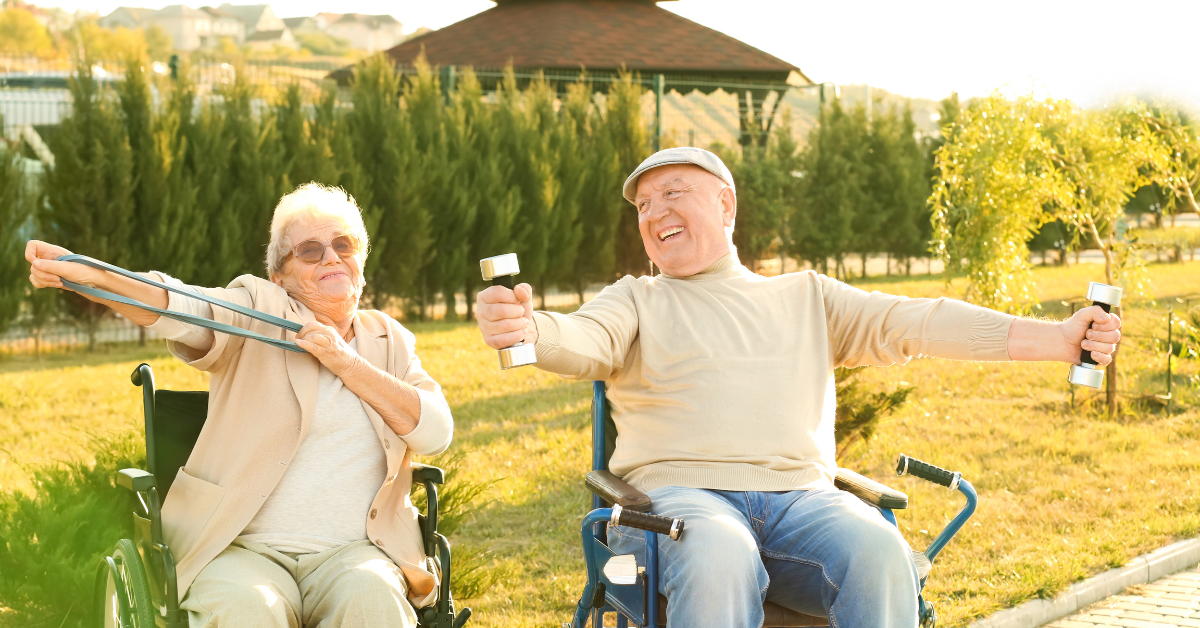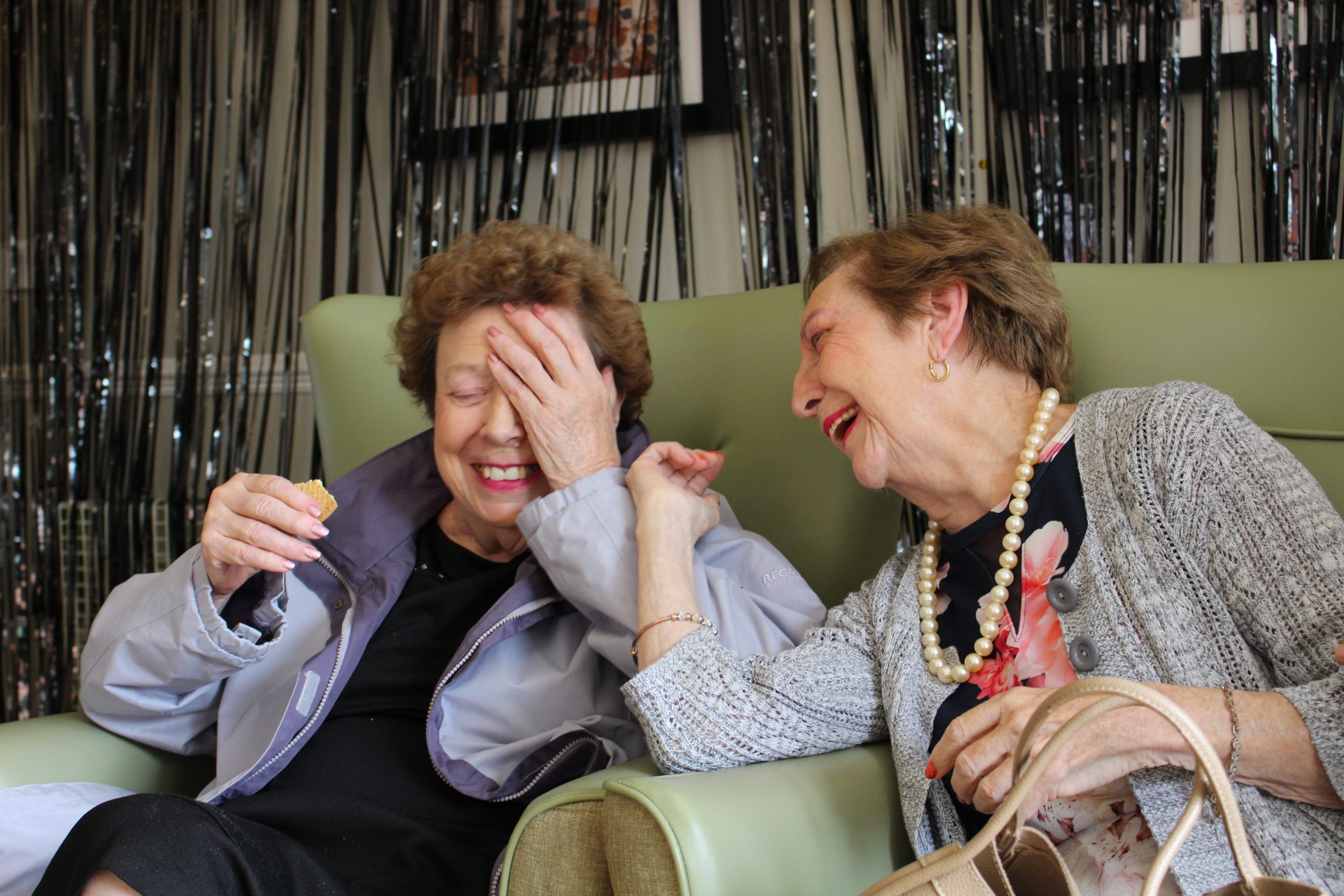Did you know that over 40% of older adults living in care homes experience loneliness and isolation?
It’s a staggering statistic that highlights the need for social activities in these settings.
In this article, we will explore the importance of fostering a sense of community through social activities in care homes, and how it can have a positive impact on the well-being and quality of life of residents.
Loneliness and isolation can have significant negative effects on an individual’s mental and emotional health.
When older adults are cut off from social interactions, they may experience feelings of sadness, anxiety, and even depression.
By actively promoting social activities within care homes, such as group outings or game nights, residents have the opportunity to build meaningful connections with their peers.
This not only helps combat feelings of loneliness but also creates a supportive network where individuals can share experiences, engage in stimulating conversations, and form lasting friendships.
The sense of belonging that comes from being part of a community contributes greatly to overall well-being and happiness.
Reducing Loneliness and Isolation
Reducing loneliness and isolation is a crucial aspect of fostering a sense of community in care homes. Social activities play a vital role in creating connections among residents, helping them combat feelings of loneliness and isolation. By engaging in group activities such as game nights, movie screenings, or arts and crafts sessions, residents have the opportunity to interact with one another, share experiences, and form friendships.
These shared experiences not only provide companionship but also contribute to mental well-being. When individuals feel connected to others, they’re more likely to have a positive outlook on life and enjoy a higher quality of life overall.
Building meaningful connections is essential for fostering a sense of community within care homes. Engaging in social activities allows residents to meet new people who may have similar interests or backgrounds. Through conversations and shared experiences during these activities, individuals can forge bonds that go beyond surface-level interactions.
These connections create an environment where residents feel understood, valued, and supported by their peers. This sense of belonging helps combat feelings of loneliness and isolation even further as residents build relationships based on common interests or shared goals.
Building Meaningful Connections
Promoting meaningful connections is key to cultivating a vibrant and engaged environment within care homes. By encouraging residents to interact with each other and form friendships, care homes can create a sense of community that enhances the overall well-being of their residents.
Meaningful connections provide opportunities for socialization, support, and companionship, which can help reduce feelings of loneliness and isolation. Activities such as group outings, game nights, or even simple conversations during meal times can foster these connections and create a warm and welcoming atmosphere in the care home.
These meaningful connections also have a positive impact on cognitive function and emotional health. Engaging in conversations and building relationships stimulates the brain, keeping it active and sharp. It provides an opportunity for individuals to share stories, experiences, and wisdom, or simply enjoy each other’s company.
This social interaction helps combat feelings of depression or anxiety that may arise from living in a care home environment. By promoting these meaningful connections among residents, care homes are not only enhancing mental and emotional health but also creating a supportive network where everyone feels valued and connected to one another.
Transitioning into the subsequent section about ‘enhancing mental and emotional health’, fostering these connections goes beyond just reducing loneliness; it plays a vital role in improving overall well-being within care homes.
Enhancing Mental and Emotional Health
Take a moment to reflect on the transformative power of meaningful connections in enhancing your mental and emotional well-being within the care home environment.
Engaging in social activities and building relationships with fellow residents can have a profound impact on your overall happiness and sense of belonging.
By participating in group activities, such as games, music sessions, or arts and crafts, you not only stimulate your mind but also create a supportive network that fosters emotional support and understanding.
These interactions provide opportunities for laughter, shared experiences, and mutual encouragement, all of which contribute to a positive state of mind.
Developing meaningful connections within the care home community is essential for promoting a sense of belonging.
Feeling connected to others who are going through similar experiences can alleviate feelings of loneliness and isolation.
In turn, this can lead to improved mental health outcomes by reducing symptoms of depression and anxiety.
Establishing strong relationships with fellow residents allows you to share stories, offer advice, and find comfort in knowing that you’re not alone on your journey.
As we explore further into promoting a sense of belonging within care homes, it’s important to recognize the role that social activities play in fostering these connections.
Promoting a Sense of Belonging
Immerse yourself in the care home environment like a blooming flower, and watch as a vibrant tapestry of connections weaves together to create a sense of belonging.
In care homes, social activities play a crucial role in promoting this feeling among residents. By participating in group events, such as game nights or art classes, individuals can form bonds with their peers and staff members. These shared experiences foster a sense of community and help combat feelings of loneliness or isolation that can often be prevalent in care home settings.
Additionally, engaging in social activities provides opportunities for residents to share stories, interests, and laughter with others who understand their experiences. As residents actively participate in social activities, they begin to feel valued and included within the care home community. This sense of belonging has numerous benefits for their mental well-being.
Research shows that when individuals have strong social connections, they are more likely to experience lower levels of anxiety and depression. Feeling connected to others also promotes better cognitive function and overall life satisfaction. As relationships develop through these communal interactions, residents gain emotional support from one another – providing comfort during challenging times.
Therefore, by fostering a sense of belonging through social activities, care homes greatly contribute to improving the mental and emotional health of their residents.
Transitioning into the next section about the ‘impact on quality of life,’ these strong connections not only enhance mental well-being but also have far-reaching effects on various aspects of residents’ lives.
Impact on Quality of Life
Engaging in group events and forming connections through shared experiences in care homes creates a vibrant tapestry of belonging, which has a profound impact on residents’ overall quality of life.
Participating in social activities allows residents to feel connected to others and fosters a sense of community within the care home. Through these interactions, residents can develop meaningful relationships, build support systems, and enhance their emotional well-being.
Being part of a community not only provides companionship but also promotes mental stimulation and physical activity. Group events such as game nights or exercise classes encourage residents to stay active both mentally and physically. These activities help maintain cognitive function, improve mood, reduce feelings of loneliness or isolation, and increase overall happiness. Additionally, having a sense of belonging can boost self-esteem and confidence among residents.
When individuals feel valued by their peers and have opportunities to contribute to the community, they experience a greater sense of purpose and fulfilment.
Participating in social activities within care homes is crucial for fostering a sense of belonging and ultimately improving the quality of life for residents. By engaging in group events and forming connections with others, residents benefit from companionship, mental stimulation, physical activity, increased self-esteem, and an overall enhanced emotional well-being.
Care homes should prioritize creating an environment that encourages social interaction to promote a strong sense of community among its residents.
Frequently Asked Questions
Are there specific social activities that are more effective than others in reducing loneliness and isolation in care homes?
Yes, there are specific social activities that can be more effective in reducing loneliness and isolation in care homes. Activities like group outings, game nights, and art therapy have shown positive results in fostering a sense of community among residents.
How can care homes ensure that the connections built through social activities are meaningful and long-lasting?
To ensure meaningful and long-lasting connections through social activities in care homes, encourage residents to participate actively and create opportunities for regular interactions. It’s like planting seeds of friendship that blossom into beautiful relationships over time.
Are there any specific mental and emotional health benefits that can be attributed to participating in social activities in care homes?
Participating in social activities in care homes can have significant mental and emotional health benefits. It promotes social engagement, reduces loneliness and depression, improves cognitive function, and enhances overall well-being.
How can care homes promote a sense of belonging among residents through social activities?
Care homes can promote a strong sense of belonging among residents through social activities. By creating inclusive and diverse events, fostering meaningful connections, and encouraging active participation, residents will feel valued, connected, and part of a vibrant community.
Can participating in social activities in care homes have a direct impact on the overall quality of life for residents?
Participating in social activities in care homes can greatly improve the overall quality of life for residents. Engaging in these activities fosters a sense of belonging, reduces feelings of loneliness, and promotes physical and mental well-being.
Conclusion
In conclusion, social activities play a crucial role in care homes by fostering a sense of community among residents. By reducing loneliness and isolation, these activities provide opportunities for individuals to build meaningful connections with others. This not only enhances their mental and emotional well-being but also promotes a sense of belonging.
Imagine being surrounded by a vibrant tapestry of friendships, where laughter echoes through the halls like a symphony. Social activities create an atmosphere akin to an oasis in the desert, offering solace and connection to those who may feel adrift in their daily lives. It’s like finding an anchor amidst stormy seas, providing comfort and support.
Moreover, these activities have a profound impact on the quality of life for residents. They breathe life into the monotony of routine, injecting joy and excitement into each day. Social engagement acts as a catalyst for personal growth and self-discovery, empowering individuals to embrace new experiences with open arms.
So let us celebrate the importance of social activities in care homes – they are the beating heart that sustains communities within four walls. May we continue nurturing this vital aspect of care home living, ensuring that every resident feels valued and connected to those around them? After all, it’s through these shared moments that true happiness thrives like wildflowers in bloom, spreading joy and warmth throughout the care home and creating a vibrant and loving community for all to enjoy.




